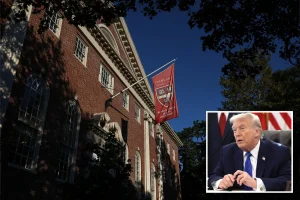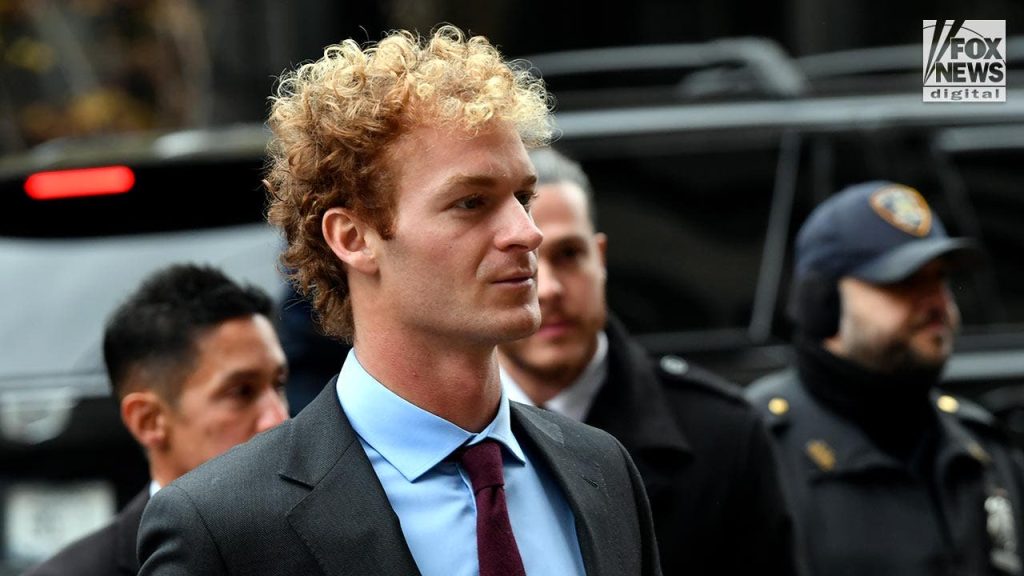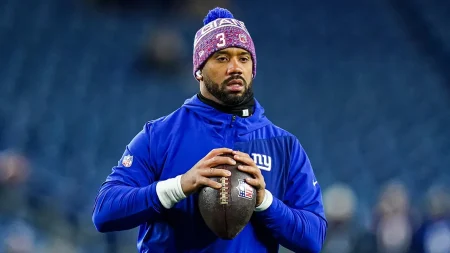The upcoming Army-Navy football game has become unexpectedly intertwined with the recent acquittal of Daniel Penny, the Marine veteran found not guilty in the death of Jordan Neely. Vice President-elect JD Vance extended an invitation to Penny to attend the game as his guest, an invitation Penny accepted. This decision has sparked controversy, highlighting the divergent public reactions to Penny’s acquittal and raising questions about the politicization of the event.
Penny’s attendance at the game alongside prominent political figures like President-elect Donald Trump and potentially Florida Governor Ron DeSantis adds another layer of complexity. Vance defended his decision, praising Penny as a “good guy” and criticizing the Manhattan District Attorney’s office for prosecuting him. This stance reflects the view held by many who believe Penny acted in self-defense, while critics argue his actions were excessive and led to a tragic, avoidable outcome.
The backdrop of the Army-Navy game, a traditionally celebrated event emphasizing national unity and military service, further intensifies the debate. The game’s focus on athletic competition and camaraderie contrasts sharply with the circumstances surrounding Penny’s invitation. The presence of such divisive figures inevitably shifts the narrative away from the sporting event and onto the highly charged political and social issues at play.
The case itself, involving the death of Jordan Neely, a homeless man with a history of mental illness, sparked widespread protests and discussions regarding mental health care, homelessness, and public safety in urban environments. Neely’s erratic behavior on the subway, coupled with his history of mental illness and encounters with law enforcement, exposed the challenges faced by individuals experiencing homelessness and mental health crises. Penny’s intervention, while perceived by some as an attempt to protect fellow passengers, was viewed by others as an act of vigilantism that ultimately resulted in a preventable tragedy.
The jury’s verdict of not guilty ignited further debate, underscoring the deep divisions within American society on issues of race, justice, and self-defense. While some celebrated the verdict as a victory for personal safety and a condemnation of aggressive behavior, others criticized it as a miscarriage of justice and a reflection of racial bias within the legal system. Penny’s subsequent invitation to the Army-Navy game, therefore, becomes a symbolic representation of these conflicting perspectives.
The Army-Navy game itself holds significant historical and cultural importance. It embodies the spirit of competition between the two military academies while also fostering a sense of unity and shared purpose in service to the nation. The presence of prominent political figures is not unusual at such events, but the inclusion of Daniel Penny, a figure embroiled in recent controversy, undeniably transforms the occasion into a platform for political expression and potentially amplifies pre-existing societal divisions. The juxtaposition of a celebrated sporting event with a highly sensitive and polarizing legal case raises questions about the appropriateness of using the game as a backdrop for such expressions.















